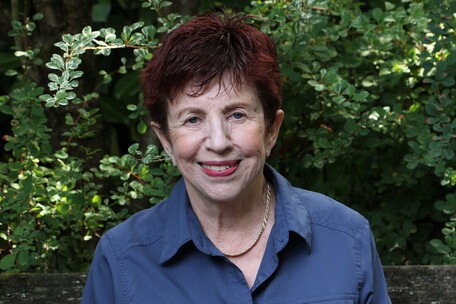Interview with Sigrun Susan Lane
1. In your poem "Umma's Brown Bread," you speak of “frozen landscapes inside their own bodies.” Can you elaborate on this imagery, and its connection to the experience of womanhood?
As I wrote those lines I saw a man traversing the rough lava fields in the 19th century in South Iceland in snowy winter. These trips were dangerous. The wind was fierce from the North Atlantic. The sharp lava rock shredded the leather of his shoes.
And “the frozen landscapes inside their own bodies” I was also thinking of the silent reserve of the Nordic people. Their ability to endure. In particular, the character of Northern men who spoke few words and showed little emotion, It was as if the harsh environment had entered into them and frozen them in a kind of coldness. They displayed little affection. They depended on women to express emotion within the family and the community. And so the women too sometimes become frozen inside.
2. Who is a woman—whether familial, historical, or fictional—that has impacted your life, and why?
The “Umma” in this poem is my grandmother who helped raise me and my siblings. She was an immigrant from Iceland. She baked the heavy brown bread that we ate daily. I remember taking my lunch to school and being embarrassed that my sandwich was on this dark bread. I wished mine was on Wonder Bread like all the other kids. I have another poem “Umma” where I wrote:
I wished you another grandmother,
one bringing pale tea, dry white toast.
I flinched at your broken-tongued English,
your daily immigrant’s bargains,
burned in coats you cut from father’s suits.
Today in a life as smooth as tile,
as predictable as a super market,
I listen for your voice dickering
for tired lettuce, bruised fruit.
I hunger for your rich dark bread.
She was a wonderful woman and I loved her with all my heart. She taught me to stand up for myself, to stay strong in the face of adversity. As she said, “It’s a great life, if you don’t weaken.”
3. What poetic lines ever uttered by a woman have stayed with you, and why?
Some lines of poetry uttered by women that have stayed with me most, include lines from Edna St. Vincent Millay. Millay was one of my Mother’s favorites. So I read Millay as a child and as I grew up. I remember:
My candle burns at both ends,
It will not last the night,
But ah, my foes, and oh, my friends--
It gives a lovely light!
Her line, “Oh world I cannot hold thee close enough…” “What lips my lips have kissed, and where, and why,”…These are lines that have stayed in my memory. (I also read a lot of Robert Lewis Stevenson as a child.)
I read Elizabeth Bishop’s line “the art of losing isn’t hard to master.” I have had a lot of loss in my life and she speaks to that experience.
And of course Mary Oliver’s poems, so many wonderful lines... how about, “you don’t have to be good…you only have to let the soft animal of your body love what it loves” from Wild Geese, a wonderful encouragement to all of us to be who we were born to be.
Sigrun Susan Lane lives in Seattle Washington. She is the author of two chapbooks, Little Bones and SALT, which won the Josephine Miles award for excellence in 2020. Her poems have appeared in Crab Creek Review, Malahat Review, Seattle Review and many other national and international journals. She has won awards for poetry from the Seattle Arts Commission and the King County Arts Commission.
